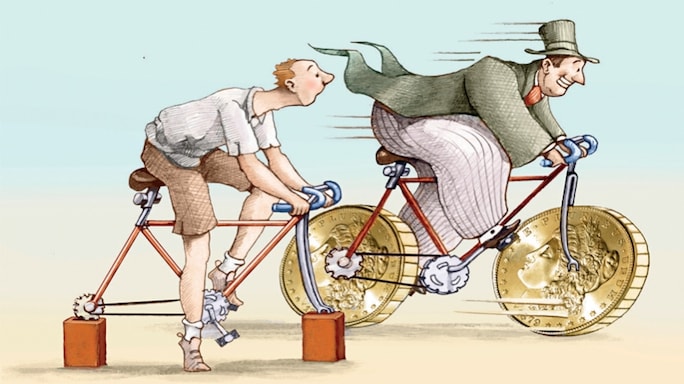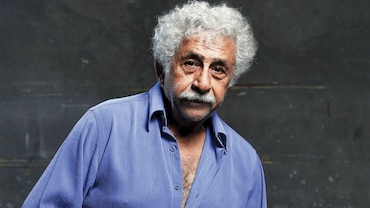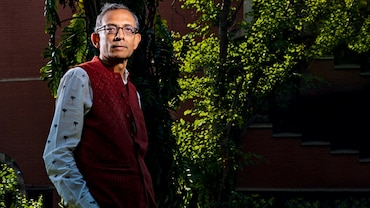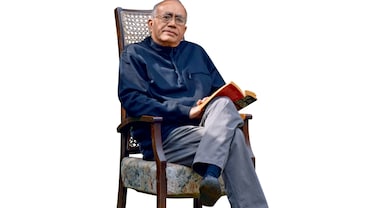We ask Esther Duflo: Is Poverty Alleviation Truly Possible?
We ask economist and Nobel laureate Esther Duflo
 Shutterstock
Shutterstock
In India, we have tried different things at the policy level to alleviate poverty. What do you think has worked and what is a sustainable approach to poverty alleviation?
To put this question in context, let’s remember that there has been tremendous progress against poverty in India. This progress started slowly in the 1980s, accelerated in the ’90s and has continued ever since. The approach that has been most effective against extreme poverty is the one we illustrate in the ‘Below Poverty Line’ chapter of the children’s book, Poor Economics for Kids. This is the ‘Graduation Approach’ originally developed in Bangladesh, but now implemented in India, particularly in Bihar, with 2,00,000 families already benefiting. It identifies the absolute poorest persons in a village and gives them a productive asset and support for two years. It has really helped people graduate out of extreme poverty. The approach is sustainable, not in the financial sense but in that the benefits far outweigh the costs.
What are the most critical factors that contribute to the long-term success of poverty alleviation programmes?
There are two things: One is to trust the poor. That is what we are learning from these programmes, whose impact has been very positive. The second is the quality of implementation. If you have fantastic ideas and they are not implemented well, you will be wasting resources.
There is a consensus on the effectiveness of education in the fight against global poverty. What are some effective strategies to improve educational outcomes in impoverished areas?Let’s first remind ourselves of the success—many kids are in school. In India, there is at least one school in each village, and often more. What’s less of a success is what children learn once they are in school. The quality of education is terrible and it’s not improving. I think the answer is to be much more mindful, in particular, in early grades, about fundamental learnings. This is being considered with the New Education Policy which puts a lot of focus on foundational learning from kindergarten to the third grade. There should be a laser focus on kids learning to read and on arithmetic, and not introduce too many other things and make it complicated.
 Esther Duflo
Esther Duflo
In India, economic growth has been coupled with an increasing concern around inequality. Should we believe in the idea that there is a trade-off between raising growth and reducing inequality and poverty?
This is really a worldwide problem across countries, whether they are rich, middle-income (like India) or poor— they have all experienced an increase in inequality. But it’s not a trade-off; it’s a result of our policy choices. It’s my personal belief that we need to be much more purposeful about making sure that the gains from growth are distributed equally. For example, the tax base in India is very low for a middle-income country. If it were higher, it would leave more fiscal space for growth-enhancing projects and wealth distribution. Reducing inequality requires policy management—it doesn’t happen on its own.
What inspired you to write for children on issues surrounding poverty? What do you believe are the key messages about poverty that children and young adults should learn?
They should learn that poor people are not aliens! They have problems that are different from that of others as well as problems that are the same. They are just as intelligent and creative. They also have their faults! The other thing they should learn is that there is nothing inevitable about poverty, and that people are not trapped into it forever because of their own faults or something their ancestors did. We need policies to alleviate poverty, and it is society’s responsibility to put them in action.
What challenges do you foresee for the poor over the next decade?For the poor in general, the biggest challenge in front of us is climate change. And it’s not in the future—we are already facing it. Of course, it is you who have experienced temperatures in excess of 45 degrees during the last heat wave. This is something that is not an exception anymore—and it affects the poor frontally. Other people have access to air conditioning and don’t need to be out when it’s very hot. But this year we saw people in India literally dying of heat stroke because they had to continue going to work. People in Delhi had to storm water trucks to get drinking water. Therefore, some of the biggest challenges are heat (for a sustained period of time at levels which are not compatible with human life), the water crisis, reduced productivity in agriculture, floods, typhoons, etc.
All of these problems are affecting everyone, but the poor primarily. My biggest worry is that all the progress we’ve been making in India will get reversed entirely by a physical environment that is just not habitable. We need to initiate not only mitigation efforts but also start being much more purposeful about how we are going to help the poor cope with this situation.
Esther Duflo is currently the Abdul Latif Jameel Professor of Poverty Alleviation and Development Economics at MIT and joint winner of the 2019 Nobel Prize for Economics. Her latest book is Poor Economics for Kids (Juggernaut).






